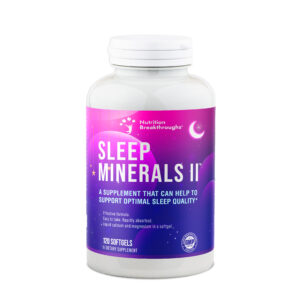 Restless Leg Syndrome as a disruptive condition that affects the nervous system and up to 10% of the U.S. population have some form of it.
Restless Leg Syndrome as a disruptive condition that affects the nervous system and up to 10% of the U.S. population have some form of it.
It results in an irresistible urge to move the legs (and sometimes the arms), often accompanied by unpleasant sensations in the legs such as creeping, crawling, tingling, pulling or pain.
Because RLS most often occurs in the evening, it can disrupt sleep, contribute to insomnia, and reduce a person’s quality of life. RLS tends to run in families. A few natural remedies have been shown to help calm the symptoms of restless legs.
The B vitamins are nourishing and essential for the good nervous system health. A study from the journal “Alternative Medicine Review” found that administration of folic acid (one of the B vitamins) alleviated the symptoms of RLS and may play a role in the treatment of primary, familial RLS. As a note, the B vitamins work together as a group and should be taken together in a supplement. This will prevent creating a deficiency in the others by taking only one of the whole group, such as folic acid (also known as vitamin B8). Some of the other B vitamins include thiamin (vitamin B1), riboflavin (vitamin B2), and niacin (vitamin B3).
In the article “Restless Leg Syndrome Responds to Calcium” by Peter Gott, M.D., he says: “Calcium has been found to be helpful in relieving nocturnal (night time) leg cramps, and some RLS sufferers have also found that it is beneficial in preventing symptoms when taken just prior to sleep…… Other deficiencies, most notably iron, magnesium, folic acid and B vitamins, are also known to cause RLS symptoms in some.”
A recent study published in the journal of “Medicine and Science in Sports and Exercise” gave the results of various forms of exercise on people who suffer with periodic leg movements (PLM). PLM is a night-time condition with similar symptoms to RLS in which sufferers experience a repetitive cramping or jerking of the legs during sleep. The results showed that both intense short-term exercise and longer term exercise lowered the symptoms and greatly aided with falling sleep and staying asleep. (A tip would be to exercise earlier in the day as it may be stimulating if done too close to bed time).
Magnesium deficiency is a key factor in RLS. Studies in the Journal “Sleep” and the “Romanian Journal of Neurology and Psychiatry” have found magnesium to be an effective natural therapy for RLS. Insomnia remedies should have a 2 to 1 ratio of calcium to magnesium (twice as much calcium as magnesium). The original research on this ratio appeared in 1935 in the Journal of Physiological Reviews.
Andrew Weil, M.D. says that using drugs for restless leg syndrome – many of which have serious side effects – should be employed only as a last resort. He suggests RLS sufferers take a calcium/magnesium supplement at bedtime, do some form of daily exercise, stretch or massage their legs, take a hot bath to relax the legs, and stop smoking if they do so, as smoking may impair blood flow to the leg muscles. Since caffeine, alcohol, and tobacco can trigger symptoms, avoiding all three substances can also bring relief.
One natural sleep remedy showing good results with restless leg syndrome is Sleep Minerals II made by Nutrition Breakthroughs. It contains highly absorbable forms of the best minerals and vitamins for relaxation: Calcium, magnesium and Vitamin D. The ingredients are delivered in a softgel form with carrier oils, making them more easily assimilated than capsules or tablets and providing a deeper, longer-lasting sleep.
A Sleep Minerals II user in Missouri says: “This combo in softgel form really works to calm nerves and restless legs, often in as little as 20 minutes. I’m at mid-life and I find that going too many days without this product and I am edgy and anxious, AND I don’t sleep well.”
Anne B. of El Dorado Hills, California says: “We find the Sleep Minerals very helpful for my husbands restless leg syndrome. He does not do well on many medications and the drug that the doctor prescribed him for this condition was full of bad side effects. Out of pure desperation, I researched the internet and came up with an article about the Sleep Minerals II and decided to try them. Sleep Minerals have been wonderful and we are both now getting a good night’s sleep. Bob continues to sleep much better and with very little if any movement in his legs. We are both grateful for this product and are glad to see that something as natural as Sleep Minerals II can have such a positive result.”
For more information on Sleep Minerals II for restless leg syndrome and insomnia visit the Sleep Minerals II page.




